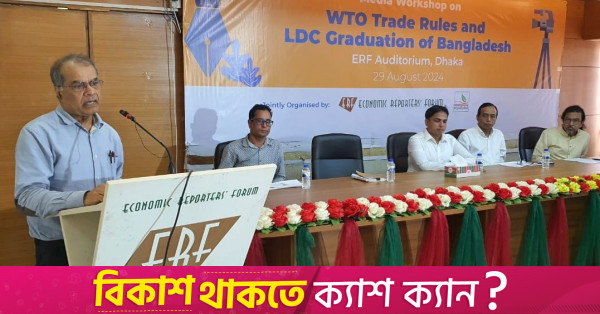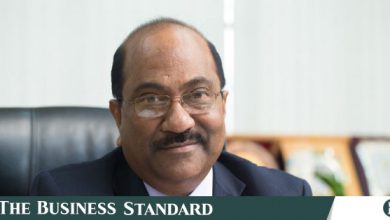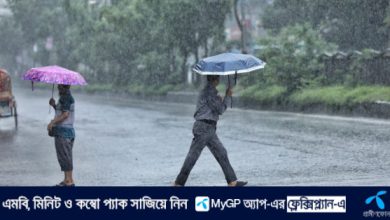Data discrepancy must be addressed before WTO negotiations: Civil society, journalists


The event was chaired by Refayet Ullah Mridha of the Daily Star and moderated by Abul Kashem, general secretary of ERF, reads a press release
Rezaul Karim Chowdhury, chief moderator of EquityBD, speaks at a workshop organised by ERF in Dhaka on 29 August. Photo: Courtesy
“>
Rezaul Karim Chowdhury, chief moderator of EquityBD, speaks at a workshop organised by ERF in Dhaka on 29 August. Photo: Courtesy
Civil society representatives and economic journalists voiced concerns over data discrepancies in Bangladesh ahead of upcoming World Trade Organization (WTO) negotiations during a media workshop held today (29 August).
The workshop, titled “WTO Trade Rules and LDC Graduation of Bangladesh,” was jointly organised by EquityBD and the Economic Reporters’ Forum (ERF). The event was chaired by Refayet Ullah Mridha of the Daily Star and moderated by Abul Kashem, general secretary of ERF, reads a press release.
Over fifty economic journalists from various news agencies in Bangladesh attended the Media Workshop. The event featured Hafizur Rahman, additional secretary and former director general of the WTO Cell, as the main speaker. Rezaul Karim Chowdhury, chief moderator of EquityBD, delivered the welcome speech, while Barkat Ullah Maruf presented the keynote on WTO agreements.
In his welcome speech, Chowdhury said, “EquityBD and COAST Foundation have been working on WTO issues since 2005. We called for the establishment of a separate WTO Cell under the commerce ministry to better monitor WTO matters and enhance the country’s negotiation skills.”
Maruf emphasised in his keynote, “We need a national strategy based on accurate data and benefit calculations before graduating from LDC status. Discrepancies in our data, driven by political ambitions, may cause us to lose negotiating ground in sectors such as agriculture and fisheries.”
Hafizur Rahman explained, “Graduation from LDC status has its benefits. It could improve our ability to compete with both developed and developing countries. Alternatively, delaying graduation could allow us to retain current opportunities available to LDCs. We need to choose between these options.”
In closing remarks, Refayet Ullah Mridha, president of ERF, suggested, “Bangladesh should consider delaying graduation for at least ten more years to thoroughly review national data and prepare for future challenges.”
Abul Kashem, the session’s moderator and general secretary of ERF, encouraged the attending economic reporters to understand WTO rules and report on them to support Bangladesh’s development.




